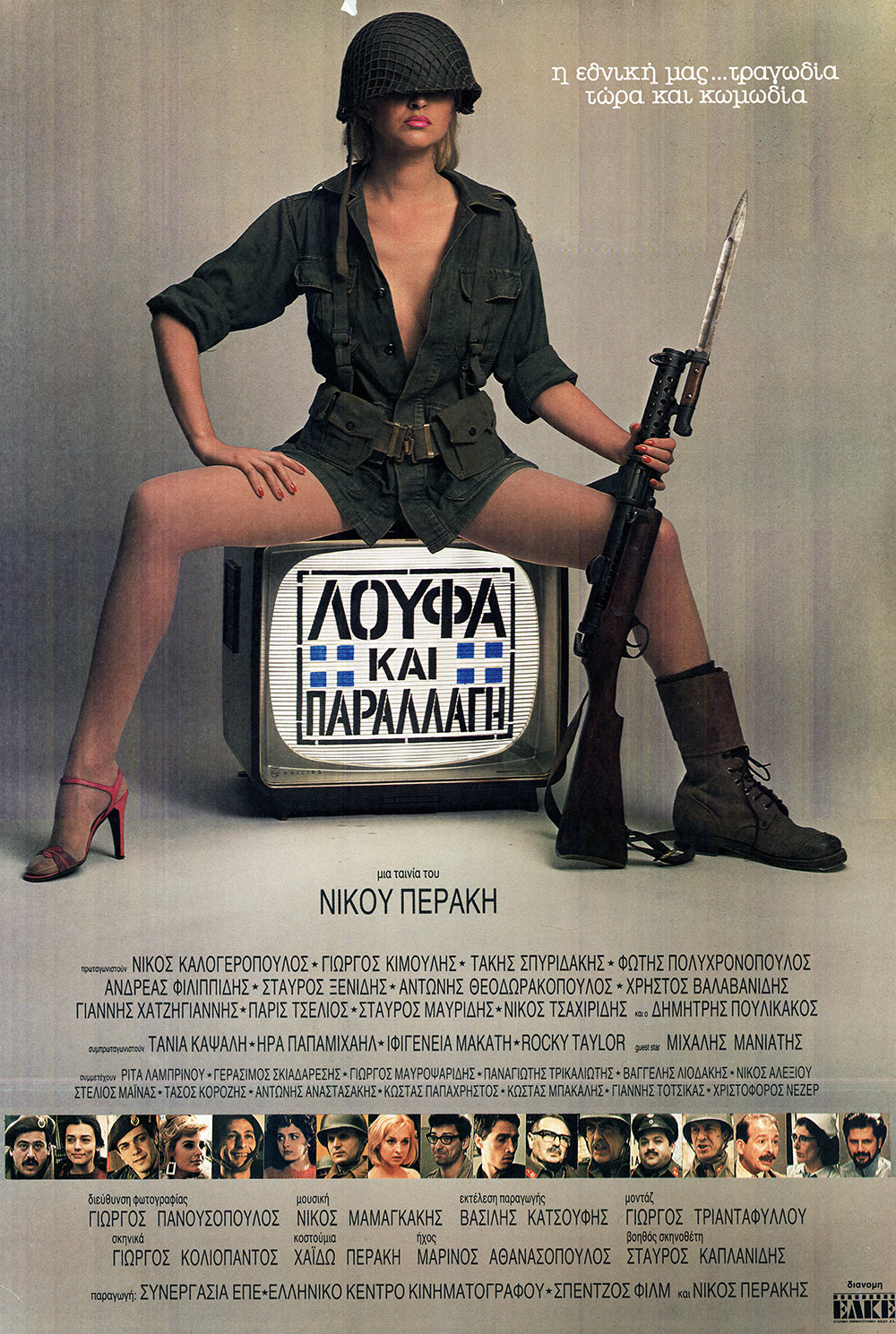The idea for a movie about our service in the Armed Forces Television existed from the day we were discharged, but the heavy pressure came from my friend Panousopoulos after "Arpa Colla". I do not remember if it was then that I gathered the hard core guys of the GYS -the Army Geographical Service’s 3rd Directorate*- to record the most interesting moments of our tour of duty, or later, after the success of the film, when STEFI asked me to write 50 episodes for television series*. What I remember definitely is that I wrote the script in Berlin on an electric OLYMPIA, with our stories on index cards in front of me and a calendar of the "historical" events of the period we served. The hardest part was the fusion of many real persons into the few main characters, the soldiers and officers of the film. Rolled into the character of the graphic designer Marlafekas, e.g., there are three of us, including me. Only Panousopoulos is almost pure as Papadopoulos. Now that the statute has lapsed on their offences I can "give away" names of some known, and less known, heroes who inspired me, such as Vasilis Alexakis, Manolis Maridakis, Christos Mangos, Aris Stavrou, Yiannis Economou, Dimitris Tsilidis, Nionios Stathopoulos... enough.
During the production stranger things happened than in the film itself. If we had shot a making-of it would play like a thriller – there was even an armed robbery on the last payday. Vasilis Katsoufis set up SYNERGY LTD for the production, in order not to drag STEFI FILM into the havoc; he was senior partner at STEFI, which was then feeding many families from "Eleia and Italia", as the evil tongues said. The production had secured the participation of the Greek Film Centre and Spentzos Film, but the Army General Staff, from which we had requested shooting permits, weapons, uniforms, equipment, vehicles, etc, would not answer us. It was a perfect catastrophe, since in the co-production budget the GFC had agreed to, there was no amount for items which would be provided by the Army, as forseen in Melina Mercouri's draft legislation for the "protection and development of film art in Greece ... " and as had been done in practice for numerous films.
The only good thing was that we never got a written reply, so Katsoufis could act as if he were expecting one. We heard that the minister didn't want to provoke repentant elements in the military or those left over from the junta, so he remained silent. Katsoufis's great achievement was surely that we built sets and were shooting for a month in the abandoned Military Academy during the administrative gap that arose when the Ministry of Defence handed the buildings over to the contractor who was going to remodel them for the Ministry of Justice. None of the three could imagine that we were working without a permit. Only on the last day when we were shooting the captain storming the gate and the bursts of Karamanos’s Lanchester were heard, did the police appear, and a patrol sent by the General Staff rushed to the location.
* GYS - The Army Geographical Service was the cartographer of the country and was printing the maps, and I was there because I had stated on recruitment that I was a scenographer. Next to the print shop where I was loading paper were the Army Cinematography and the experimental Armed Forces Television unit, thus my tranfer was easy.
* The series was finally filmed 20 years later, but that's another painful story.

LOAFING + CAMOUFLAGE
ΛΟΥΦΑ + ΠΑΡΑΛΛΑΓΗ / LOUFA + PARALLAGI
















































































































